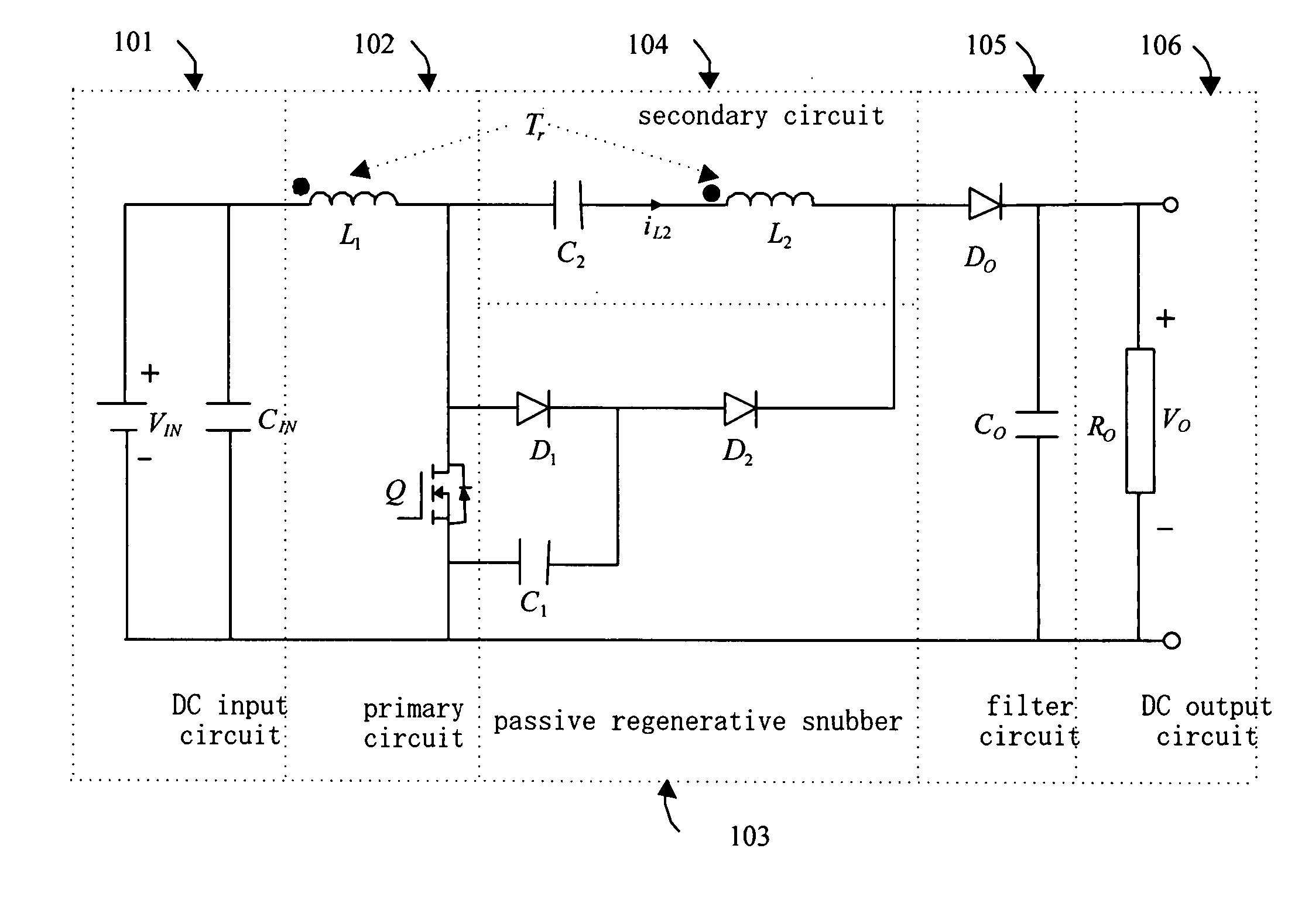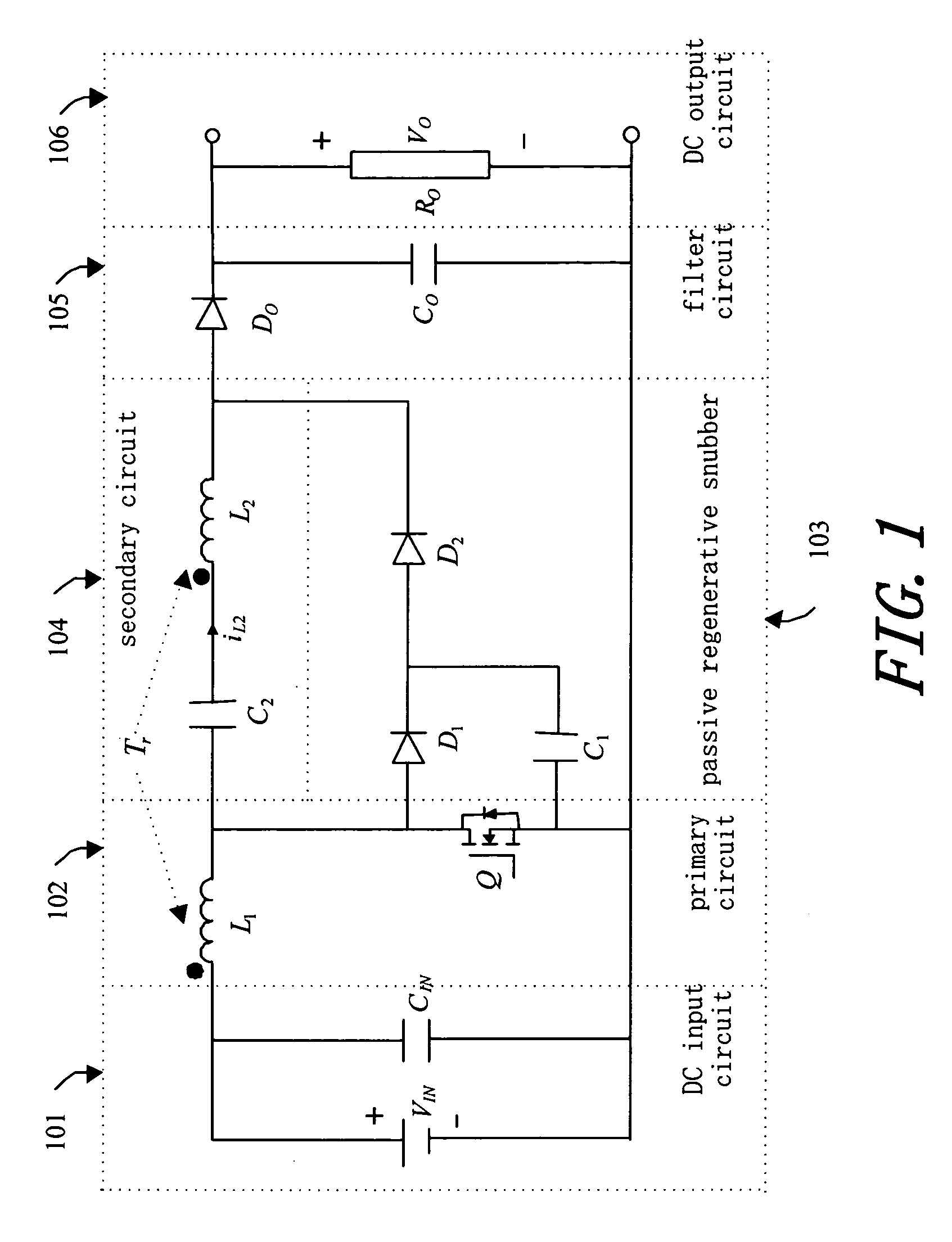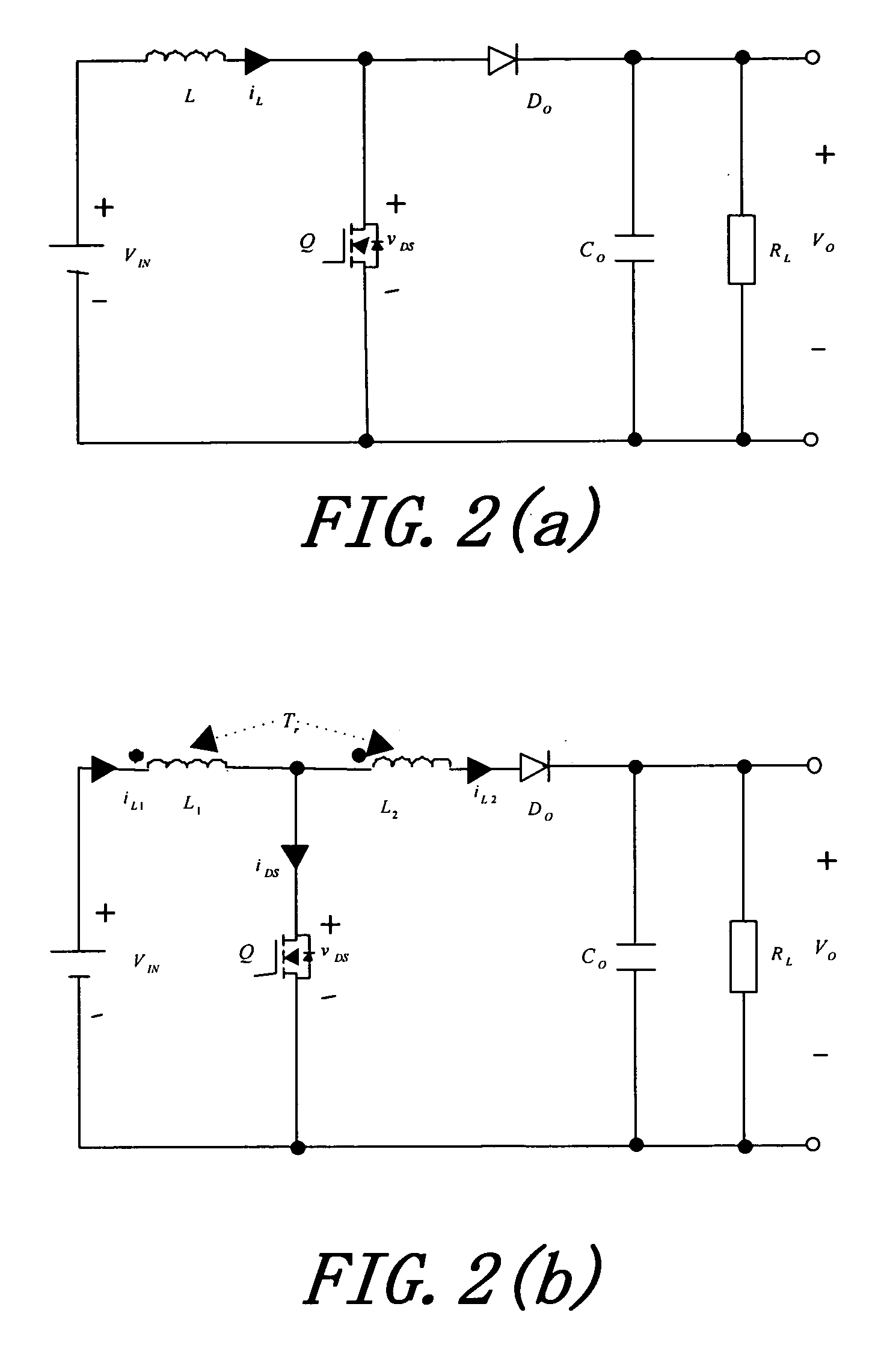Boost converter utilizing bi-directional magnetic energy transfer of coupling inductor
a technology of coupling inductor and magnetic energy transfer, which is applied in the direction of dc-dc conversion, power conversion systems, instruments, etc., to achieve the effects of low ripple, increased load, and reduced power consumption
- Summary
- Abstract
- Description
- Claims
- Application Information
AI Technical Summary
Benefits of technology
Problems solved by technology
Method used
Image
Examples
Embodiment Construction
[0048]The first preferred embodiment of the present invention is shown in FIG. 1. DC voltage VIN of DC input current circuit 101 stores energy in primary winding L1 of coupling inductor Tr when semi-conductor power switch Q of primary circuit 102 is turned on; at the same time, because bi-directional current path of secondary winding L2 of the coupling inductor Tr of secondary circuit 104, its induction voltage νL2 (polar point is positive at the moment) plus the voltage of clamping capacitor C1 of passive regenerative snubber 103 charge the high voltage capacitor C2 (charging current is −iL2) of secondary circuit 104 through semi-conductor power switch Q and discharge diode D2 route. At the instant when semi-conductor power switch Q is turned off, the current from primary circuit 102 leaves semi-conductor power switch Q, through the clamping diode D1 of passive regenerative snubber 103, into its clamping capacitor C1. According to the theorem that magnetic flux does not extinguish,...
PUM
 Login to View More
Login to View More Abstract
Description
Claims
Application Information
 Login to View More
Login to View More - R&D
- Intellectual Property
- Life Sciences
- Materials
- Tech Scout
- Unparalleled Data Quality
- Higher Quality Content
- 60% Fewer Hallucinations
Browse by: Latest US Patents, China's latest patents, Technical Efficacy Thesaurus, Application Domain, Technology Topic, Popular Technical Reports.
© 2025 PatSnap. All rights reserved.Legal|Privacy policy|Modern Slavery Act Transparency Statement|Sitemap|About US| Contact US: help@patsnap.com



